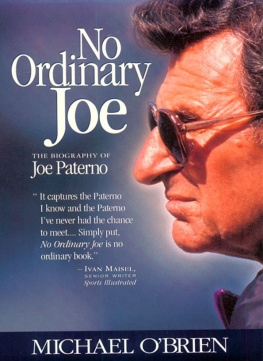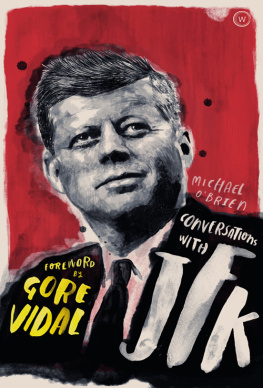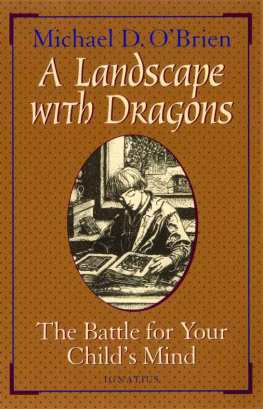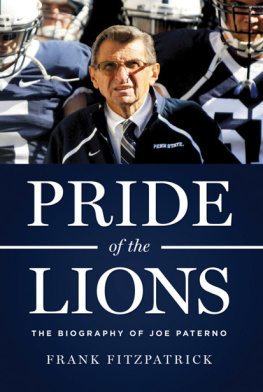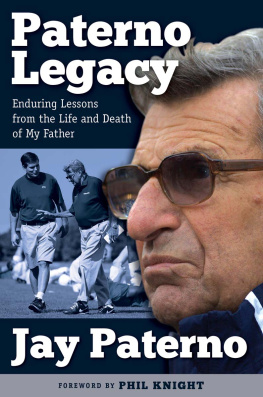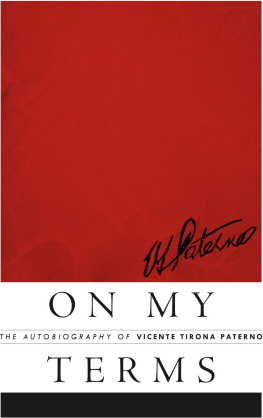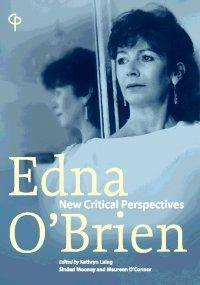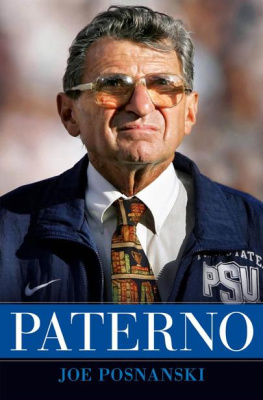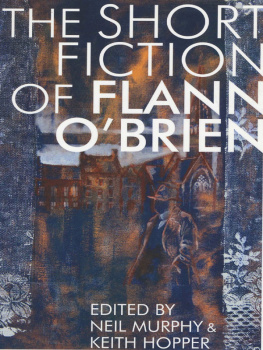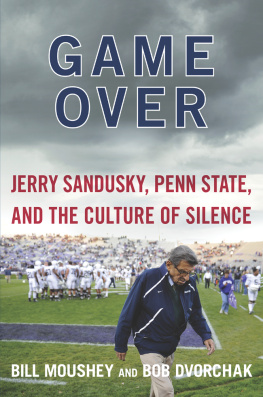Michael OBrien - No Ordinary Joe: The Biography of Joe Paterno
Here you can read online Michael OBrien - No Ordinary Joe: The Biography of Joe Paterno full text of the book (entire story) in english for free. Download pdf and epub, get meaning, cover and reviews about this ebook. year: 1999, publisher: Thomas Nelson, genre: Detective and thriller. Description of the work, (preface) as well as reviews are available. Best literature library LitArk.com created for fans of good reading and offers a wide selection of genres:
Romance novel
Science fiction
Adventure
Detective
Science
History
Home and family
Prose
Art
Politics
Computer
Non-fiction
Religion
Business
Children
Humor
Choose a favorite category and find really read worthwhile books. Enjoy immersion in the world of imagination, feel the emotions of the characters or learn something new for yourself, make an fascinating discovery.
- Book:No Ordinary Joe: The Biography of Joe Paterno
- Author:
- Publisher:Thomas Nelson
- Genre:
- Year:1999
- Rating:3 / 5
- Favourites:Add to favourites
- Your mark:
- 60
- 1
- 2
- 3
- 4
- 5
No Ordinary Joe: The Biography of Joe Paterno: summary, description and annotation
We offer to read an annotation, description, summary or preface (depends on what the author of the book "No Ordinary Joe: The Biography of Joe Paterno" wrote himself). If you haven't found the necessary information about the book — write in the comments, we will try to find it.
No Ordinary Joe: The Biography of Joe Paterno — read online for free the complete book (whole text) full work
Below is the text of the book, divided by pages. System saving the place of the last page read, allows you to conveniently read the book "No Ordinary Joe: The Biography of Joe Paterno" online for free, without having to search again every time where you left off. Put a bookmark, and you can go to the page where you finished reading at any time.
Font size:
Interval:
Bookmark:

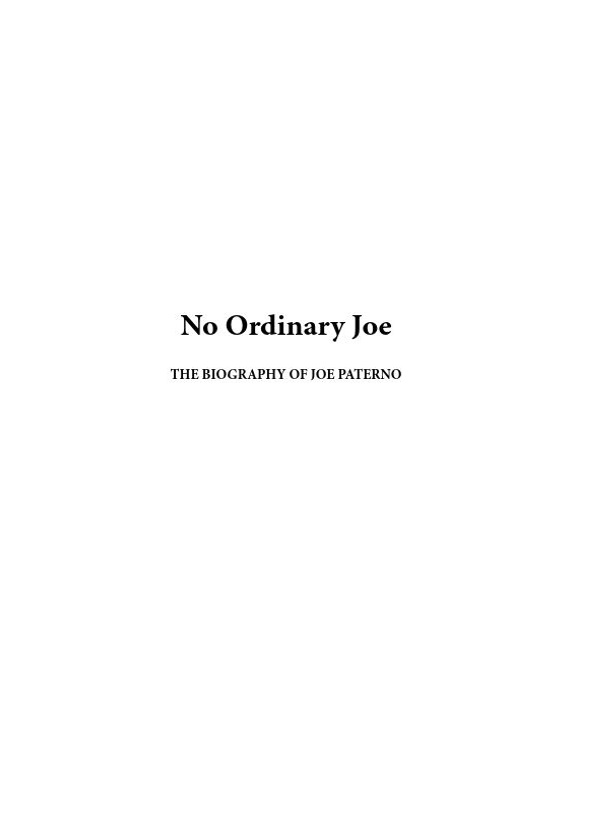
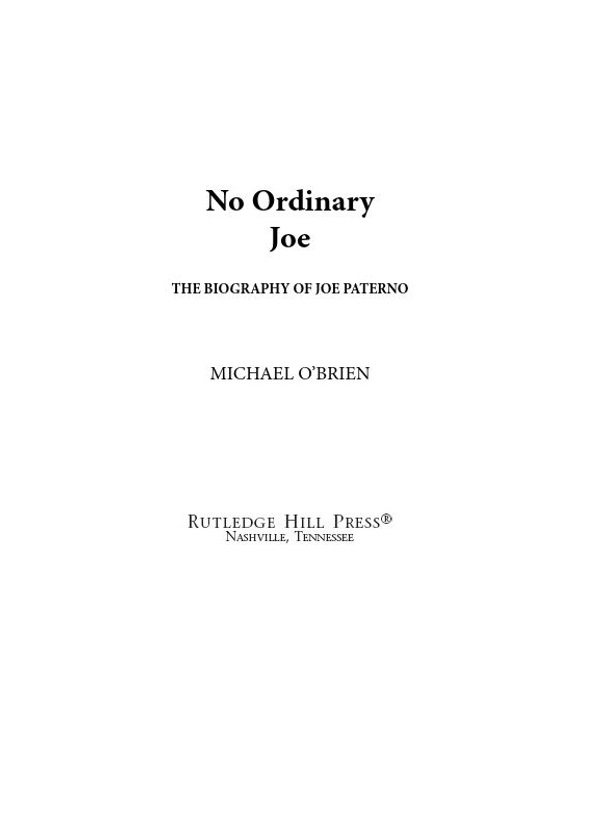
Copyright 1998, 1999 by Michael O'Brien
All rights reserved. Written permission must be secured from the publisher to use or reproduce any part of this book, except for brief quotations in critical reviews and articles.
Published in Nashville, Tennessee, by Rutledge Hill Press, a Division of Thomas Nelson Inc., P.O. Box 141000, Nashville, Tennessee 37214.
www.ThomasNelson.com
Typography by E. T. Lowe, Nashville, TN.
Library of Congress Cataloging-in-Publication Data
O'Brien, Michael, 1943
No ordinary joe : the biography of Joe Paterno / Michael O'Brien.
p. cm.
Includes bibliographical references.
ISBN 1558537155
1. Paterno, Joe, 1926 . 2. Football coachesUnited StatesBiography. 3. Pennsylvania State UniversityFootballHistory. I. Title.
GV939.P37037 1998
796.332'092dc21
[B]
98-19014
CIP
Information about External Hyperlinks in this ebook
Please note that footnotes in this ebook may contain hyperlinks to external websites as part of bibliographic citations. These hyperlinks have not been activated by the publisher, who cannot verify the accuracy of these links beyond the date of publication.
To Margaret OBrien
and
Sally OBrien
During the nearly ten years that this book has been in progress, I have incurred many debts and am delighted to express my deep gratitude. Judy Fenush, Shirley Irwin, and L. Budd Thalman assisted me while I studied clippings at the office of sports information at Penn State. Special thanks to former Penn State athletic director Jim Tarman. I am also grateful for the valuable assistance of librarians and archivists, including Martha Mitchell at the Brown University Library, and Leon Stout and Mildred Allen at Penn State.
Several persons graciously gave me (or lent me) valuable papers at their disposal. Among them were John Alexander, Ed Barry, Michael Bezilla, Nancy Cline, G. David Gearhart, Marie Giffone, John Hanlon, Rosemary McGinn, Veronica Perrone, Henry Sims Jr., and John Swinton. For their kindness and special assistance I want to thank Thomas Bermingham, Ron Bracken, Ron Christ, George Paterno, and Neil Rudel.
This is not an authorized study. I did not ask permission of Joe Paterno to write my book, preferring instead to write independently. Nonetheless, I appreciate the consideration and hospitality of Joe and Sue Paterno during my interviews with them.
As in my previous books I have placed a heavy burden on the staff at the University of WisconsinFox Valley who have, nonetheless, responded with good humor, patience, and an extraordinary commitment of time and energy. Kathy Hosmer typed many drafts of the book, and Patricia Warmbrunn efficiently processed hundreds of interlibrary loan requests.
In the early stages of my study I received important and timely grants from the University of WisconsinFox Valley and the University of WisconsinFox Cities Foundation, Inc. In addition, the University of Wisconsin awarded me a sabbatical during a critical stage of my writing.
I owe a special debt of gratitude to my volunteer typist, Reighe Nagel, who for over four years expertly and quickly typed many drafts of the manuscript.
My wife, Sally, graciously endured another book with patience, encouragement, and love. Once again, thanks to my children Tim, Sean, Jeremy, and Carey for all the love and enjoyment they bring me.
To some people Joe Paterno seems complexa grand collection of contradictions, said one observer. Sportswriter Bill Lyon noted that Paterno has been called, at one time or another, a modern Renaissance man, a latter-day Don Quixote, an educator, a motivator, a do-gooder, an intimidator, a hypocrite, a pious fraud, a tiresome dispenser of righteousness, a genius, and a choker. Another sportswriter, Ron Bracken of the Centre Daily Times, Paternos hometown newspaper, described a different mix of traits. Paterno can be cranky, tyrannical, dictatorial, blunt, scathing, charming, beguiling, entertaining, and witty, all in the span of thirty minutes.
No one disputes, though, that since 1966, when he became head football coach at Penn State University, Joe Paterno has been one of the nations most successful college coaches. Through the 1997 season Joe had compiled a record of 298-77-3 in thirty-two seasons. (He came to Penn State in 1950 as an assistant coach and has never coached anywhere else.) He has guided his teams to two national championships, four national championship games, and seven undefeated regular seasons. The recipient of numerous honors, Paterno was selected by Sports Illustrated as its 1986 Sportsman of the Year, and his peers in the American Football Coaches Association four times have named him Coach of the Year.
Joes folk hero reputation in Pennsylvania has spawned an entire line of Paterno products, including coffee mugs (Cup of Joe), life-size cardboard cutouts (Standup Joe), and golf balls with his familiar face (like the Penn State offense, three out of four guaranteed to go up the middle). He also has been the only college football coach ever to second the nomination of a president of the United States.
The acclaim for Joe Paterno has stemmed largely from the contrast between the high academic and moral standards he has tried to exemplify and the shameless conduct that often embarrasses and dishonors the college sport he cherishes. Intense pressure burdens coaches and athletic administrators at major schools. Because college football competes for the entertainment dollar, it has to put on a good performance. A good performance means not only defeating traditional rivals but also emerging with a winning record and a high ranking in the national wire-service polls. Only those teams at the top of the polls filled stadiums, received bowl invitations, appeared regularly on network television, and generated adequate revenues to finance their expensive athletic programs, observed sports historian Benjamin Rader.
Given the high stakes involved in fielding winning teams, temptations to cheat are difficult to resist. Head coaches are especially vulnerable. Since recruiting blue-chip athletes is crucial to success, illegal inducements are sometimes offered. Alumni and booster groups, often with the tacit approval of the coaches, give athletes cash, fancy cars, new clothes, rent-free apartments, and high-paying summer jobs.
To obtain the admission of an outstanding athlete with a poor high school or junior college academic record, coaches sometimes tamper with transcripts and make up deficiencies in hours of college credits or grades by arranging for easy correspondence or extension division courses.
The fundamental illogic of sending functional illiterates into college classrooms has not yet dawned on educators and administrators, sportswriter John Underwood complained in 1979. They would rather be liberal than right. They have consistently made it easy for the coach to bring in nonstudents as students as long as they can negotiate one hundred yards in 9.5 seconds.
Under Joes long leadership, however, Penn States football program has never been accused of significant wrongdoing by any official investigative body. It has never been on probation and never been cited by the NCAA for major violation of its rules. Moreover, shortly after becoming head coach, Joe proclaimed his Grand Experiment, an effort to prove that academic standards and excellent football could coexist at the university. He often harped on the theme. Defensive lineman Steve Smear, whose father had died when Steve was a child, was the first member of his family to attend college. Early in his career at Penn State in the 1960s, he skipped many classes and did poorly in his courses, sparking Joes concern. If you fell down academically, said Smear, you had to go [into Joes office], sit down, and look him in the face. Joe told Smear: I promised your mother that you would get an education. Dont disappoint her. Dont disappoint me. Straighten it out or youll never play here. Smear straightened out his career, served as co-captain of the team his junior and senior years, and dramatically improved his grade-point average.
Font size:
Interval:
Bookmark:
Similar books «No Ordinary Joe: The Biography of Joe Paterno»
Look at similar books to No Ordinary Joe: The Biography of Joe Paterno. We have selected literature similar in name and meaning in the hope of providing readers with more options to find new, interesting, not yet read works.
Discussion, reviews of the book No Ordinary Joe: The Biography of Joe Paterno and just readers' own opinions. Leave your comments, write what you think about the work, its meaning or the main characters. Specify what exactly you liked and what you didn't like, and why you think so.

